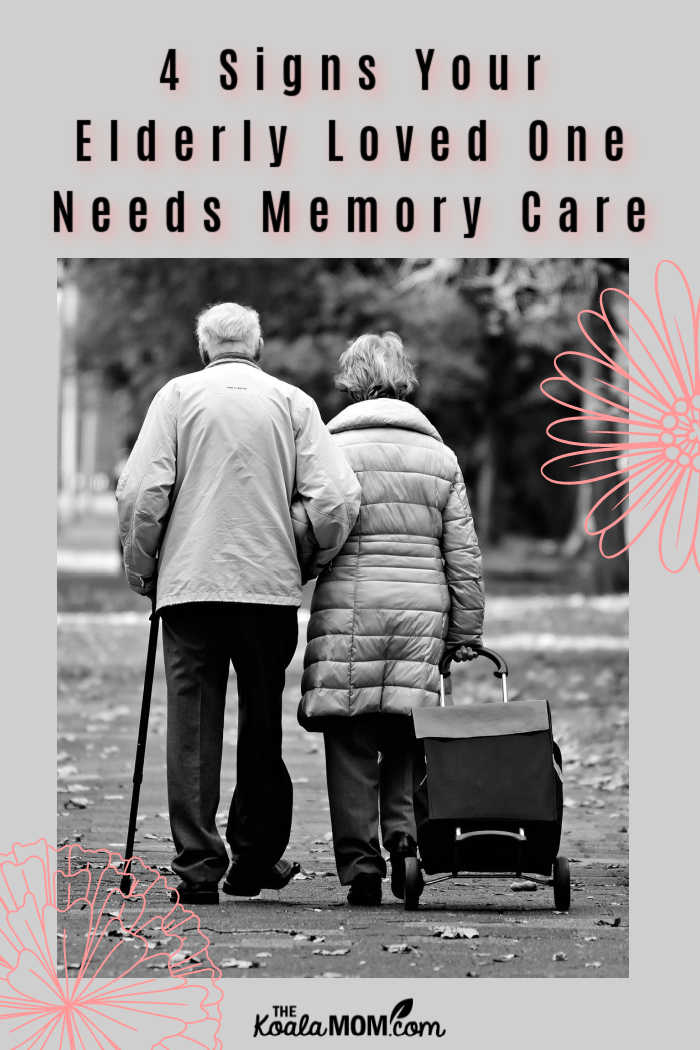Aging is a natural part of life that is a difficult reality for many. There will come a time where our aging parents or relatives will demonstrate signs that they need special care, and we need to be prepared to address them. Whether you need to bring them to a nursing or retirement home, a dedicated memory care institution, or an assisted living facility, here are some signs and changes that you need to watch out for to help you with your decision.

I saw each of these signs played out in my grandmother’s life in the decade after we left Alberta. For a year, we lived twenty minutes away from my grandmother and could visit her on a weekly basis; at that time, I noticed that she was starting to forget a few things and her hearing wasn’t so good. Then we moved away, and returned about twice a year to visit.
It was during these visits every six months or so that I noticed huge differences in Grandma’s ability to communicate with us and do basic tasks like make tea or find cookies for her great-grandchildren. My grandpa was increasingly taking over these tasks. Eventually, my aunt and uncle helped my grandma get a room in a new seniors’ care facility in town.
Failure to accomplish basic tasks
When your aging loved one starts to lose their memory, they tend to disregard their daily tasks. There is a big difference between simply forgetting a person’s name and failing to recall how to function as a human being. Your loved one might be apprehensive about driving or frequently forget to follow basic road safety rules. Other indications would be unpaid bills stacking up in the mailbox, several missed doctor appointments, a messy and unkempt home, and spoiled or zero food in the refrigerator.
Another sign of memory loss is neglected personal hygiene where they routinely fail to clean themselves properly or have been using the same set of unwashed clothes for several days. Some may have even forgotten how to dress correctly or how to operate the shower.
Their overall health deteriorates
Some people suffering from memory loss will have significant weight loss. They may have forgotten to shop for groceries, prepare their food, or even fail to eat properly. They also tend to forget to take their medications and will sometimes show signs of depression. Many will exhibit multiple behavioral changes such as moodiness, being too emotional, anxious, withdrawn, and agitated.
You might also see inexplicable bruises or injuries caused by minor accidents at home where they were unable to recall how to call for assistance due to memory loss. For example, my grandmother fell down while she was out getting errands. Unfortunately, she couldn’t remember how or where she fell down to tell my grandfather or my aunt about it.
Forgetfulness can also place your elderly loved ones in dangerous situations as they may wander in the middle of the night. My grandfather was often woken up by my grandma who had turned on lights or was trying to make tea in the middle of the night. If your parent or grandparent lives alone, there may be no one to help them back into bed. They will likely get disoriented, confused, and lost without knowing how to return to their homes.
Overwhelmed primary caregiver
Being an untrained primary caregiver of your aging relative will prove to be emotionally and physically challenging. As their memory condition worsens, you might get too overwhelmed to the point where you no longer can balance your other responsibilities, and there’s a chance that your health will also suffer. It might also cause a strain in your relationship with your loved one when conflict arises.
Caring for an elderly loved one does not mean sacrificing your health for their wellbeing. While my grandpa clearly loved my grandma very deeply, his own health was suffering in his attempts to care for her. It was better for both of them that she was moved into a home, where he could visit her frequently but her primary care was done by younger, more energetic staff members.
Their needs are beyond yours or their primary caregiver’s abilities
Would a dedicated facility be more beneficial to your loved one compared to their own home? Are they feeling isolated or more depressed than usual? Do they need more socialization, and are the daily maintenance activities stressing him out? Does their doctor recommend going to a facility? These are some of the questions you need to ask yourself when dealing with relatives suffering from memory loss. Remember, the main goal is to get the best senior care for your loved ones, so you need to schedule a tour online or call to visit different facilities to maximize all your available options and resources.
Understandably, we might feel guilty for contemplating sending our elderly to a facility. We might think that we are failing our loved ones by not sticking with them during their worst times. These feelings are normal, and we must remember that in these cases, seeking professional assistance is best for everyone involved.

No Responses Yet